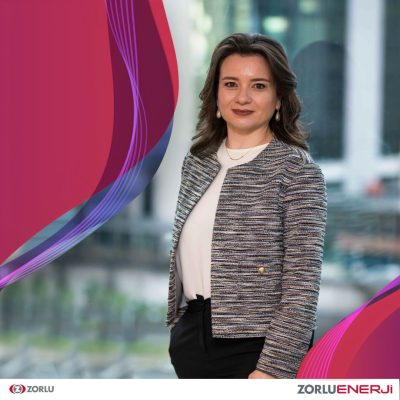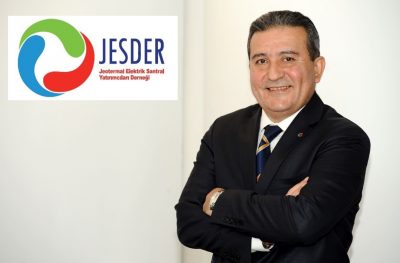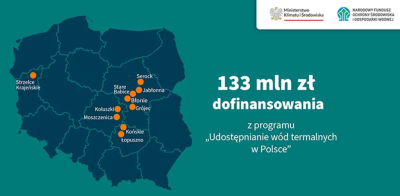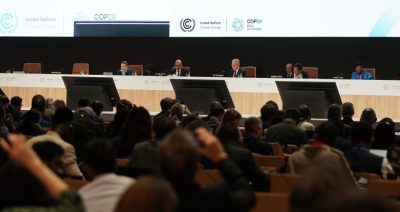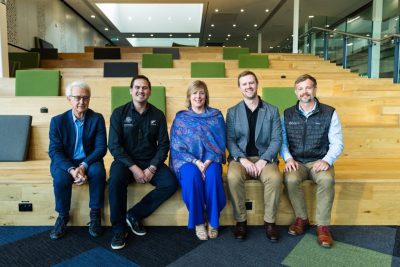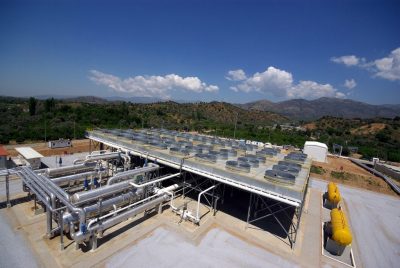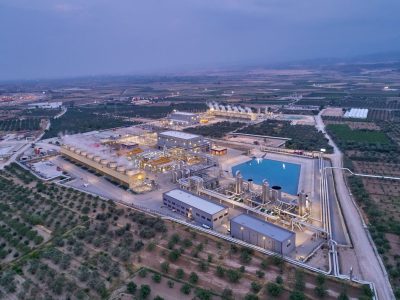Ormat’s CEO Dita Bronicki on management secrets
The management secrets of the CEO of Ormat Industries (the mother company/ majority owner of NYSE-listed Ormat Technologies) are the center of an article on the company and the vision of Yehuda and Dita Bronicki.
In a local article in Israel, the “management secrets” of the CEO of Ormat Industries (the mother company/ majority owner of NYSE-listed Ormat Technologies) are the center of a description on the company and the vision of Yehuda and Dita Bronicki. Interesting reading.
The article talks about, “Bronicki believes that behind every vision should be a clear business plan with one single number at the end: a binding quantitative target.
Ormat Industries, the multinational geothermal powerhouse she helped found 44 years ago, is not considered a high-paying employer. Dita, the CEO, and her husband Lucien (Yehuda) Bronicki probably couldn’t have held onto the plant’s quality manpower if not for their personal example. The couple’s salary cost the company $581,000 and $621,000 in 2008, most of which was bonuses.
Advertisement
Ormat develops, builds and operates geothermal and recovered energy power plants. Its vision of clean energy was born from Yehuda spending weekends as a student rowing on the polluted river Deule that flows through Lille, France.
The ability to recognize the changing nature of its competition, identify new needs and take advantage of tax benefits and subsidies for alternative energy has enabled this little Yavneh-based company to gain a foothold without being trampled by giants like Fuji, Mitsubishi and General Electric – and to compete from Israel in global markets, from Kenya to Siberia, New Zealand and Nevada.
The combination of far-reaching vision, a command of details and conservative, cautious administration demonstrate the management qualities that transformed the modest firm from Yavneh, founded in 1965, into a billion-dollar company traded on the Tel Aviv and Nasdaq stock markets. The firm has carried out projects all over the globe, and far outperforms its own benchmarks. It has generated an adjusted rate of return of 205% since January 2000 compared to 75% for the market, 150% for the industry index and 74% for the TA-25 index.
Yehuda and Dita Bronicki’s unaffected manner could be misleading. Anyone who thought Ormat was managed by kind-hearted naifs has learned that the Bronickis can be practical and calculating managers who recognize nuances and are prepared for all.
Dita Bronicki doesn’t like telling the story of Ormat by looking at herself as a manager, because Ormat has always operated as a team, she says.
She began as Ormat’s treasurer and administrative manager. Eight years later she joined senior management. In the 1970s and 1980s there was a clear division of responsibilities between her and Yehuda: He was chairman and CEO, handling engineering and marketing, while Dita focused on finance and logistics.
“In the 1970s we weren’t a global company. The press wasn’t like it is today, and overseas travel was expensive. When Yehuda traveled overseas for six weeks I was responsible for the areas he normally handled. In other words, even then the company was managed jointly,” she says.
Dita took over as CEO in 1991. She handles day-to-day management while Yehuda is responsible for strategy and long-term technological vision. Their son Yoram leads the U.S. subsidiary, Ormat Technologies. “Obviously our management paradigm isn’t exactly ‘according to the book,'” she says.
One of Ormat’s qualities is the impressive tenure of its top management. “I suppose the average tenure is about 25 years,” she says. The company’s four vice presidents have been there for an average of 30 years. Most are 55 to 62.
“I think this is very special. In the American corporate environment it’s nonexistent, and it’s pretty unique in the Israel as well,” she says. “The chemistry between us has its drawbacks. We see things the in same way.”
Doesn’t that kill innovation?
Not at all, says Dita. “Yehuda’s font of innovation hasn’t dried up, so the company hasn’t stagnated.”
Are you dependent on the managers under you? Is the company dependent on you?
“On the managers as a group, certainly. I can’t really say that I’m dependent on any single one of them, just as the company isn’t dependent on me. Nobody’s irreplaceable. The company will be different after I go, because every person leaves a personal imprint, but it isn’t dependent on me.”
You state with confidence that wages at Ormat are more egalitarian than at other companies. Which companies would you compare to Ormat?
“We don’t compare ourselves with other companies, but with the Israeli market in general. Our lowest salary is higher, and our highest salary is lower … Our company activities are for all. If we go on a trip to Eilat, everyone goes together. Managers don’t go to one place and employees to another.”
Are your expectations set by example? Are ‘íøì÷øã expected to work around the clock, or maintain some balance? Should they be satisfied with achievement or should they always strive for more?
“I get to work at 7 A.M. and usually go home at 8 or 9 P.M. Unfortunately, since e-mail was invented, and then the Blackberry, managers are expected to be available around the clock. I don’t want them to take their cues from me, because I’m a bit insane in that respect. Nevertheless, I don’t carry a Blackberry. Managers come in at 8:30 A.M. and leave at 8 or 9 P.M., but they work from home and take calls from overseas. I don’t expect them to come in at 7 A.M. with me. I need an hour and a half to get ready for the day and go over my mail, because I don’t like to read mail at night. That doesn’t obligate them.
“The thing we all share is complete identification with the company … Loyalty to the company also springs from identification with its vision. There is a group of young people motivated by identification with the firm’s vision, and a palpable sense of creation. The decision-making pipeline is very short at Ormat. If someone comes up with a good idea, he can make it happen. It creates a good atmosphere. This is also because the company has a very caring management.”
How many times has the company come under existential threat?
“I think the last serious threat was in 1986, one the eve of closing the financing deal for the Ormessa project in California. Sometimes the difference between a successful company and a failed one is a tiny bit of luck mid-way, because successful companies took risks – and risk sometimes succeeds and sometimes doesn’t.
“We planned a 20-megawatt geothermal power station, and there was definitely risk involved. The financier withdrew at the last minute. Had we not succeeded in finding alternative financing quickly, Ormat definitely could have faced collapse.”
How do you manage employees to work together toward the organization’s goal, despite internal competition?
“First of all, I don’t always succeed. Competitiveness is part of the human condition. A growing company handles these things more easily than one that is stagnating. It doesn’t entirely prevent internal intrigues, which must be dealt with – by discussion and persuasion. Sometimes the organizational structure is bent to handle these things.
“The group must work as a team, because the objectives, missions and challenges belong to the entire organization, not just a single department, which perhaps makes them easier. You can’t attain a working and successful geothermal power station without teamwork between turbine planners and geothermal source planners and the people who build both. Things may be easier for us because the objectives are not departmental, but organizational.”
How do you make the organization innovative? Does this draw on the entire organization, or is this Yehuda’s job?
“It is an effort on the part of the entire organization, but Yehuda certainly leads it.”
Source: Haaretz – Israel News

